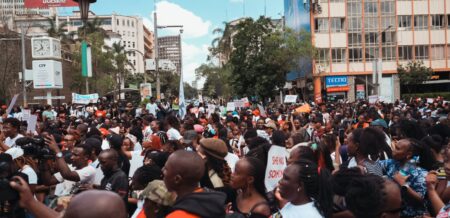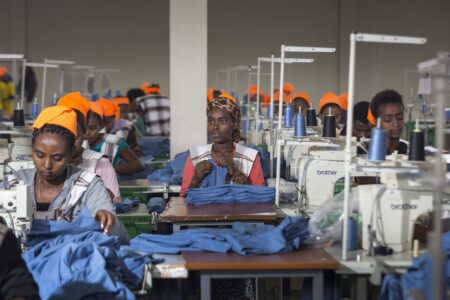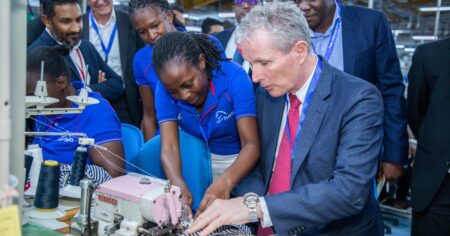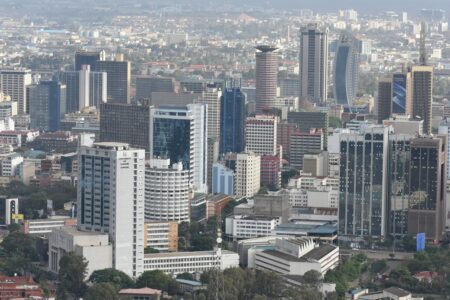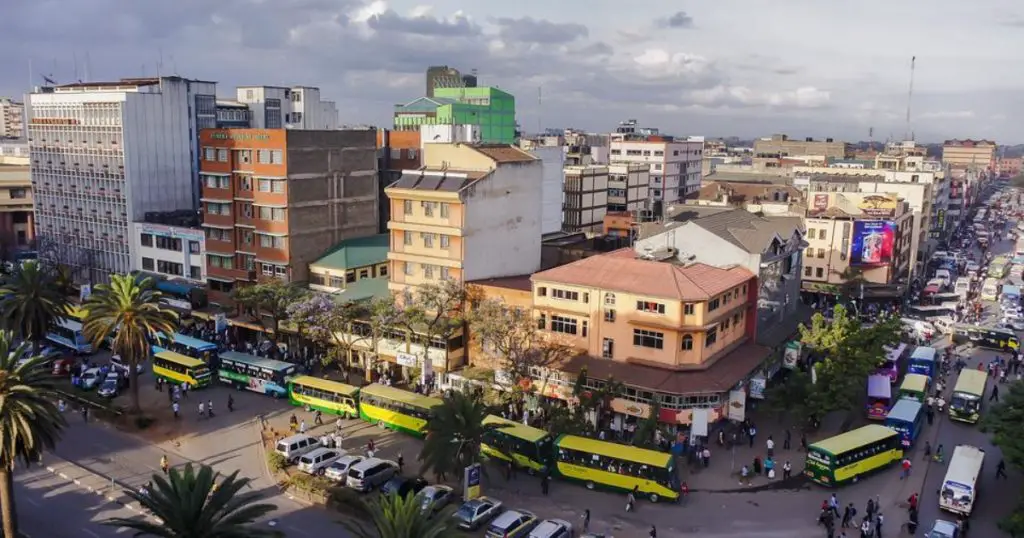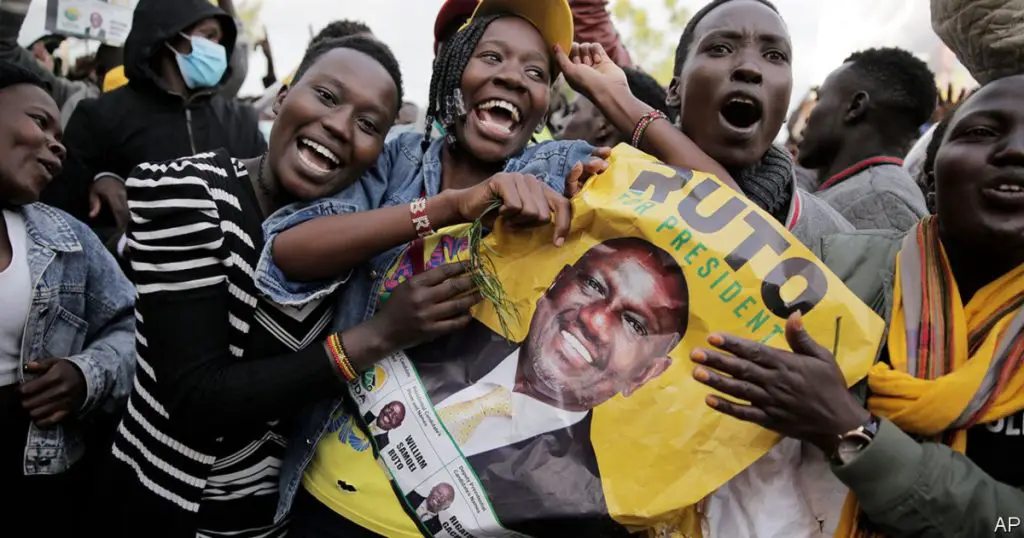- How transition finance can catalyse Africa’s green industrial revolution
- Stanbic PMI Report: Mixed performance as Kenya’s agriculture, construction offset manufacturing decline
- Uganda’s land management gets a tech makeover to boost transparency
- Nigeria’s output dips fastest in 19 months on a sharp rise in costs
- Apple faces growing backlash over Congo exploitation
- Why East Africa is staring at higher wheat prices in 2025
- Nairobi Gate SEZ pumps $7 million into Kenya’s agro-processing industry
- What impact will the US election have on Africa?
Browsing: Purchasing Managers’ Index (PMI)
- Business confidence slips to lowest since February
- Input prices rise mildly after back-to-back declines
- Steepest drops in activity and new work for seven months
Kenya’s business activity dips amid tax revolt
Kenya’s business activities fell sharply in June amid reports of widespread economic challenges and a negative impact on sales from protests and policy uncertainty, the Standard Bank’s Purchasing Managers’ Index (PMI) for June indicates. New business intakes dropped at the fastest rate since November last year, leading to a drop in business confidence and weaker job creation.
Although Kenyan firms also saw a renewed increase in their input costs in June, the rate of inflation was mild and had little impact on selling charges.
The survey by Stanbic Bank Kenya, compiled by S&P Global was conducted between June12 and June 26, with headline figure derived from the survey reading at 47.2 in June. Readings above 50.0 signal an improvement …
-
- Output rises at the sharpest rate in 20 months.
- New order volumes strengthen.
- Input costs fall for the second month in a row.
Kenya recorded an improvement in private sector business conditions during May, as falling cost burdens and rising new business contributed to a solid expansion in activity.
The Latest Stanbic Bank Kenya Purchasing Managers’ Index indicates that activity’s upturn was the sharpest in 20 months, as was input buying growth.
Job creation continued at a mild pace even as reductions in fuel prices and import costs led to a further drop in overall input prices in May, after the first decrease in nearly four years during April.
Selling prices started to rise again, albeit slowly. The Purchasing Managers’ Index (PMI). Readings above 50.0 signal improved business conditions in the previous month, while readings below 50.0 show a deterioration.
The latest headline PMI reading of 51.8 marked the index’s
- Kenya’s private sector enjoyed a much more stable business environment in April amid continued job creation in the market, with the country enjoying the lowest inflation in two years.
- Employment growth continues as the country’s economy remains on a growth trajectory.
- The headline PMI registered fractionally above the 50.0 neutral mark at 50.1 in April, up from 49.7 in March.
Kenya’s private sector enjoyed a much more stable business environment in April amid continued job creation in the market, with the country enjoying the lowest inflation in two years.
The latest Purchasing Managers’ Index by Stanbic Bank depicted broadly steady operating conditions across the sector during the month, as order book volumes and output levels have changed little since March.
The 12-month outlook continued to rebound sharply from February’s record low, and employment growth was maintained, as the country’s economy remained on a growth trajectory.
World Bank has projected Kenya’s …
Business conditions in Kenya remained in a steep decline halfway through the final quarter of the year, according to the latest Purchasing Managers’ Index (PMI) by S&P Global.
This comes amid sizeable falls in output, new orders, and employment in November, as indicated by the PMI, which closely monitors market-moving economic indicators, covering more than 30 advanced and emerging economies worldwide.…
Kenya’s private sector activities contracted in September as high fuel prices and inflation took a toll on businesses, which saw a drop in sales, the latest Purchasing Managers Index (PMI) now indicates.
Stanbic Bank Kenya’s PMI slid back into negative territory at the end of the third quarter, as firms saw a sharp contraction in new orders following a brief respite in August. In the period, elevated inflationary pressures and rising fuel bills dampened client sales, leading to the second-fastest rise in input costs in the survey’s near-decade history.…
- In Kenya, political protests accelerated the downturn, leading to a sharp dip in output that was the fastest since August last year.
- Forex woes and reports of rising fuel prices and taxes equally pushed up business costs in July.
- In Uganda, data shows output and new orders are edging up steadily on a monthly basis in the past one year.
Kenya’s private sector activity suffered a further drop in demand at the start of the third quarter of the year, latest statistics show, as customers continued to limit spending amid steep inflation. Kenya’s poor data came even as neighbouring Uganda recorded improvements in the health of the its private sector activity. Uganda is experiencing a stronger demand environment despite facing challenges in the macro environment.
In Kenya, political protests accelerated the downturn, according to surveyed firms. This resulted in a sharp contraction in output that was the fastest since August …
- Businesses in Kenya only saw a mild improvement in operating conditions in October 2022
- The latest Purchasing Managers’ Index showed that ongoing concerns about the rising cost of living led to a softer expansion in new orders and a renewed drop in output
- Inflationary pressures remained severe, as firms highlighted a record increase in purchasing costs from the previous month
According to the latest Purchasing Managers’ Index, businesses in Kenya only saw a mild improvement in operating conditions in October 2022.
The Stanbic Bank Kenya survey showed that ongoing concerns about the rising cost of living led to a softer expansion in new orders and a renewed drop in output.
Despite this, employment continued to rise amid increased backlogs, while firms were the most upbeat about the
outlook for activity since July 2021.
“October’s PMI continued to signal an improvement in business conditions, albeit with a loss of momentum
compared …
- Business activity in Kenya increased in September, helped by the conclusion of the general election
- The Purchasing Managers’ Index (PMI) commissioned by Stanbic Bank shows that the growth in business activity in Kenya was the first recorded in seven months
- As a result, the headline index posted in September was at 51.7, up sharply from 44.2 in August.
- The reading signalled a renewed and modest improvement in overall business conditions.
A new report has shown that the conclusion of the general election in Kenya led to increased business activity in the country in September.
According to the Purchasing Managers’ Index (PMI) commissioned by Stanbic Bank, the growth in business activity in Kenya was the first recorded in seven months.
Business activity in Kenya was supported by customer demand growth following the general elections’ end.
It was also supported by an improvement in supply chains, encouraging firms to purchase more …





